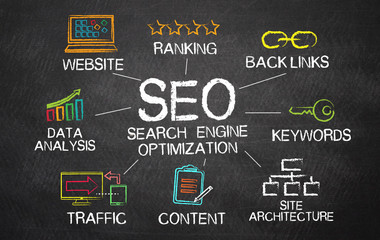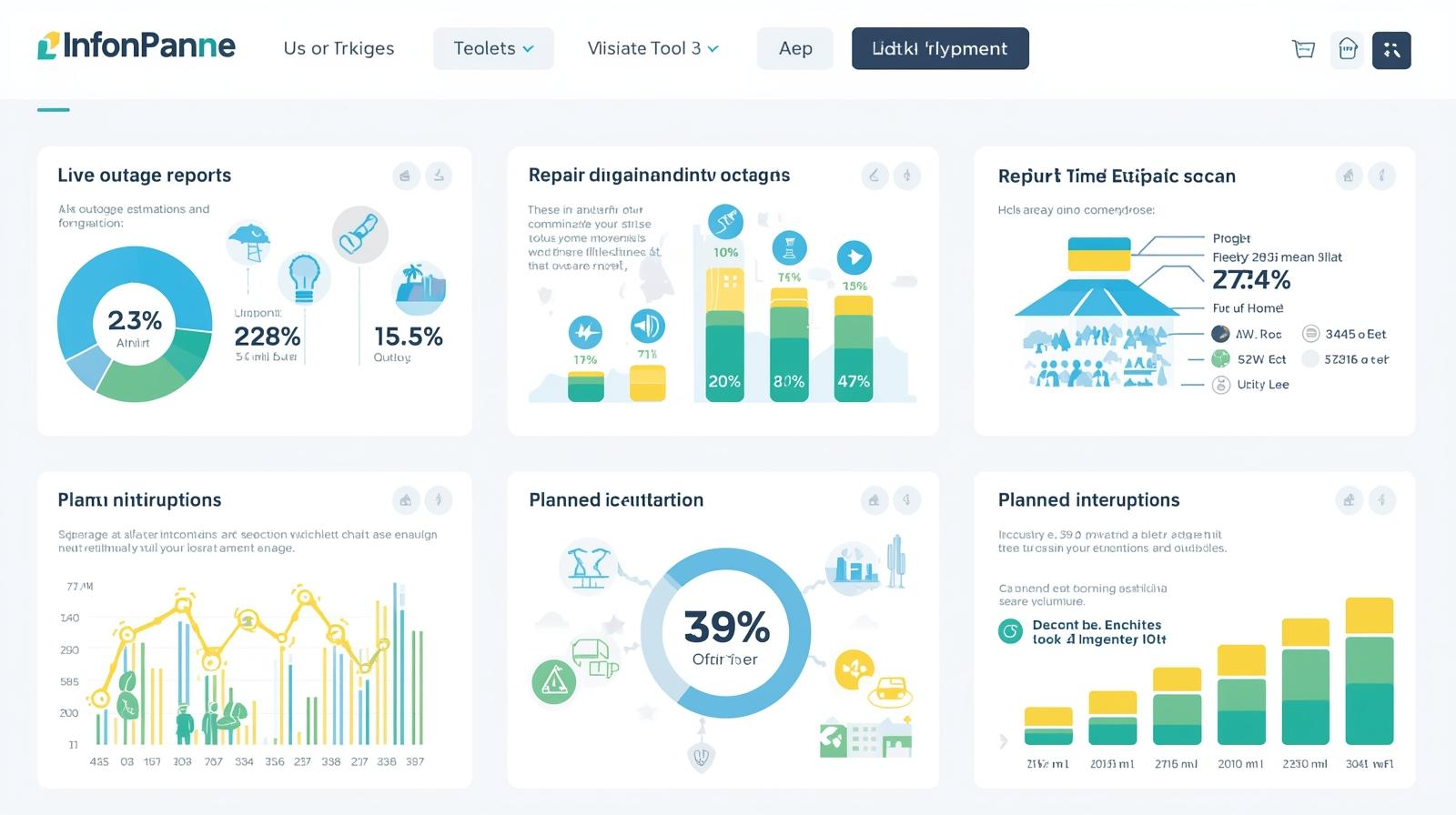Learn Why Is Search Engine Optimization (SEO) Important for driving organic traffic, improving website visibility, and gaining a competitive edge. Discover key SEO benefits and strategies for success.
Introduction
Search Engine Optimization (SEO) is a fundamental aspect of digital marketing that helps websites rank higher in search engine results. In an era dominated by the internet, SEO plays a pivotal role in increasing a website’s visibility, driving organic traffic, and improving user experience. The importance of SEO cannot be overstated, as it directly influences a business’s online presence, customer acquisition, and overall success. Therefore, understanding why SEO is important can help businesses and individuals harness its full potential to grow and succeed in the digital world.
The Role of SEO in Enhancing Online Visibility
One of the most significant reasons why search engine optimization (SEO) is important is its role in increasing a website’s visibility. When a website is optimized correctly, it becomes easier for search engines like Google, Bing, and Yahoo to index and rank the site. This, in turn, leads to improved visibility on search engine results pages (SERPs). Since most users tend to click on the first few results they see, a higher ranking boosts the chances of attracting organic traffic. Without SEO, your website might remain buried on the second or third page of search results, limiting its potential for exposure. Therefore, if you want your website to be seen by a larger audience, SEO is essential.
SEO Increases Organic Traffic
Organic traffic is the traffic that comes to your website through search engine results, rather than through paid advertisements. SEO is a crucial tool for driving this kind of traffic because it ensures that your site ranks well for relevant keywords. Optimizing your website for search engines involves improving content quality, structure, and performance, which ultimately makes your site more appealing to both users and search engines. With higher rankings in search results, more users will discover your site naturally, leading to an increase in organic traffic. Over time, this can result in more conversions, making SEO a powerful long-term strategy for sustainable business growth.
Cost-Effective Marketing Strategy
Unlike paid advertising, SEO offers a cost-effective way to attract visitors to your website. While paid ads require continuous financial investment to maintain visibility, SEO provides long-lasting results that continue to deliver traffic without ongoing costs. By optimizing your website’s content and structure, you can improve its organic ranking and continue attracting visitors over time, making it a highly efficient use of resources. In contrast, once you stop paying for ads, your visibility drops, whereas SEO efforts can continue to pay off for months or even years. For small businesses or startups with limited marketing budgets, SEO offers a valuable opportunity to compete in the digital space.
Building Trust and Credibility with Users
Another reason why search engine optimization (SEO) is important is that it helps build trust and credibility with users. Websites that rank high in search results are often viewed as more credible by users. Since search engines use complex algorithms to evaluate the relevance and authority of websites, a high ranking indicates that your site is a reliable source of information. By focusing on creating quality content, gaining backlinks from authoritative sites, and optimizing for technical SEO, you can boost your website’s credibility in the eyes of both search engines and users. This trust can lead to increased conversions, as users are more likely to engage with a brand they perceive as trustworthy.
SEO Improves User Experience
An often-overlooked benefit of SEO is its ability to enhance the overall user experience (UX) of a website. Search engines like Google prioritize websites that offer a positive user experience, which includes factors such as fast load times, mobile responsiveness, easy navigation, and high-quality content. When users have a seamless experience on your website, they are more likely to stay longer, engage with your content, and return in the future. Additionally, positive user interactions contribute to higher rankings, creating a cycle of improvement where better UX leads to better SEO performance. This connection between SEO and user experience makes optimization crucial for both attracting and retaining visitors.

SEO Gives You a Competitive Advantage
In the competitive world of digital marketing, SEO can give you an edge over your competitors. Websites that optimize their content and structure effectively tend to rank higher than those that don’t, allowing them to capture more organic traffic. If your competitors are not focusing on SEO, you can outperform them by implementing effective SEO strategies that boost your website’s ranking. On the other hand, if your competitors are already using SEO, you will need to stay ahead of the curve by continually improving your website’s optimization. Either way, SEO is essential for staying competitive in an increasingly crowded online marketplace.
Long-Term Strategy for Sustainable Growth
Unlike some marketing strategies that may deliver short-term results, SEO is a long-term investment that can deliver sustainable growth. By consistently optimizing your website, producing high-quality content, and earning backlinks, you can continue to improve your rankings and attract organic traffic over time. As your website’s authority grows, your search rankings will become more stable, and you’ll see continued success without having to rely on paid advertising or other short-lived tactics. Therefore, SEO provides a lasting foundation for growth, helping businesses stay relevant and visible in the ever-changing digital landscape.
Higher Click-Through Rates (CTR)
Higher search engine rankings are often associated with higher click-through rates (CTR). Studies have shown that users are more likely to click on websites that appear at the top of search results. This is especially true for the first few results, where the highest CTRs are recorded. By optimizing your website for search engines, you increase the likelihood of appearing in these prime positions, ultimately driving more traffic to your site. SEO strategies like improving meta descriptions, using engaging headlines, and optimizing for featured snippets can further increase your CTR, leading to more visitors and potential customers.
SEO Helps Target the Right Audience
One of the main reasons why search engine optimization (SEO) is important is that it helps businesses target the right audience. SEO allows you to optimize your content for specific keywords and search queries that align with the interests and needs of your target audience. This means that the people who visit your website are more likely to be interested in your products or services, increasing the chances of conversion. By targeting long-tail keywords, creating relevant content, and optimizing for local SEO, you can ensure that your site reaches the people who are most likely to engage with your brand.
SEO Drives Local Traffic and Increases Foot Traffic
For businesses with a physical location, SEO can be a powerful tool for driving local traffic and increasing foot traffic to your store. Local SEO involves optimizing your website for location-based searches, ensuring that users in your area can find your business when searching for relevant products or services. By creating a Google My Business profile, using location-specific keywords, and earning local backlinks, you can improve your local search rankings and attract more customers from your neighborhood. As more people rely on mobile devices for local searches, optimizing for local SEO has become an essential part of any business’s online strategy.
SEO Helps Improve Conversion Rates
An often-overlooked benefit of SEO is its ability to improve conversion rates. When your website ranks higher in search results, it attracts more targeted traffic, which means that the visitors who land on your site are more likely to convert into customers. In addition, SEO ensures that your website is optimized for a smooth user experience, from fast load times to easy navigation. These factors contribute to a higher likelihood that visitors will engage with your content and take the desired actions, whether that’s making a purchase, filling out a contact form, or subscribing to a newsletter.
SEO Provides Insights into Customer Behavior
SEO tools like Google Analytics and Google Search Console offer valuable insights into customer behavior, allowing you to understand how users are interacting with your website. By analyzing data such as search queries, bounce rates, and time spent on site, you can gain a better understanding of your audience’s preferences and needs. These insights can inform your content strategy, allowing you to create more relevant and engaging content that resonates with your audience. In turn, this helps you optimize your website further and improve your SEO performance, creating a cycle of continuous improvement.

SEO Strengthens Brand Awareness
When your website ranks high in search engine results, it increases brand awareness. Users are more likely to recognize your brand when they see it consistently appear in the search results. This repeated exposure helps build trust and familiarity with your brand, which can lead to higher conversion rates. Additionally, SEO allows you to optimize your content for voice search, which is becoming an increasingly popular way for users to interact with search engines. By incorporating conversational keywords and phrases, you can ensure that your brand is visible to users who are using voice search to find information.
SEO Improves Social Media Presence
Although SEO and social media marketing are distinct strategies, they often complement each other. By optimizing your website’s content, you increase the likelihood of users sharing your content on social media platforms. This can lead to more backlinks, increased visibility, and higher rankings in search results. Additionally, social signals like likes, shares, and comments can indirectly influence your SEO performance, as search engines consider social media engagement as a factor in ranking algorithms. Therefore, a strong SEO strategy can help boost your social media presence and vice versa.
SEO Helps Create a Positive Online Reputation
A strong SEO strategy can also contribute to building a positive online reputation. When your website ranks high in search results, it increases the chances of positive reviews, testimonials, and content being discovered by users. By focusing on reputation management, creating high-quality content, and earning backlinks from authoritative sources, you can position your brand as a leader in your industry. This positive reputation can lead to increased customer loyalty, improved sales, and greater brand recognition.
SEO Encourages Continuous Improvement
The digital landscape is constantly evolving, and SEO encourages continuous improvement. To maintain or improve your rankings, you must regularly update your website with fresh content, monitor your performance, and adapt your strategy to changes in search engine algorithms. This ongoing process of optimization ensures that your website remains competitive and relevant in a constantly shifting market. By staying up to date with the latest SEO trends and best practices, you can ensure that your website continues to perform well and attract organic traffic over the long term.
SEO Leads to Better Content Marketing Results
Content marketing and SEO go hand in hand. When you optimize your content for search engines, you increase the chances of it being discovered by your target audience. This makes your content more likely to appear in search results, leading to higher traffic and greater engagement. By combining SEO with a solid content marketing strategy, you can maximize your content’s reach and impact.
Conclusion
why search engine optimization (SEO) is important can be summed up in several key points. SEO increases visibility, drives organic traffic, and builds trust and credibility. It is a cost-effective, long-term strategy that gives businesses a competitive advantage and helps improve user experience. Additionally, SEO leads to higher conversion rates, strengthens brand awareness, and provides valuable insights into customer behavior. With its numerous benefits, SEO is an essential component of any digital marketing strategy and a key factor in achieving long-term online success. By investing in SEO, businesses can secure a solid foundation for growth and stay ahead of the competition.
Read also: Ubersuggest SEO and Keyword Boosting Your SEO Strategy








